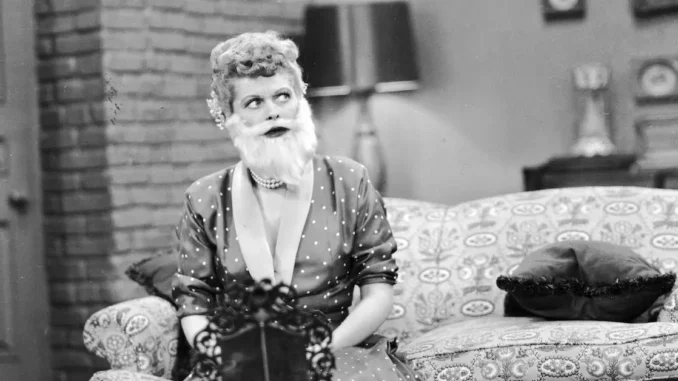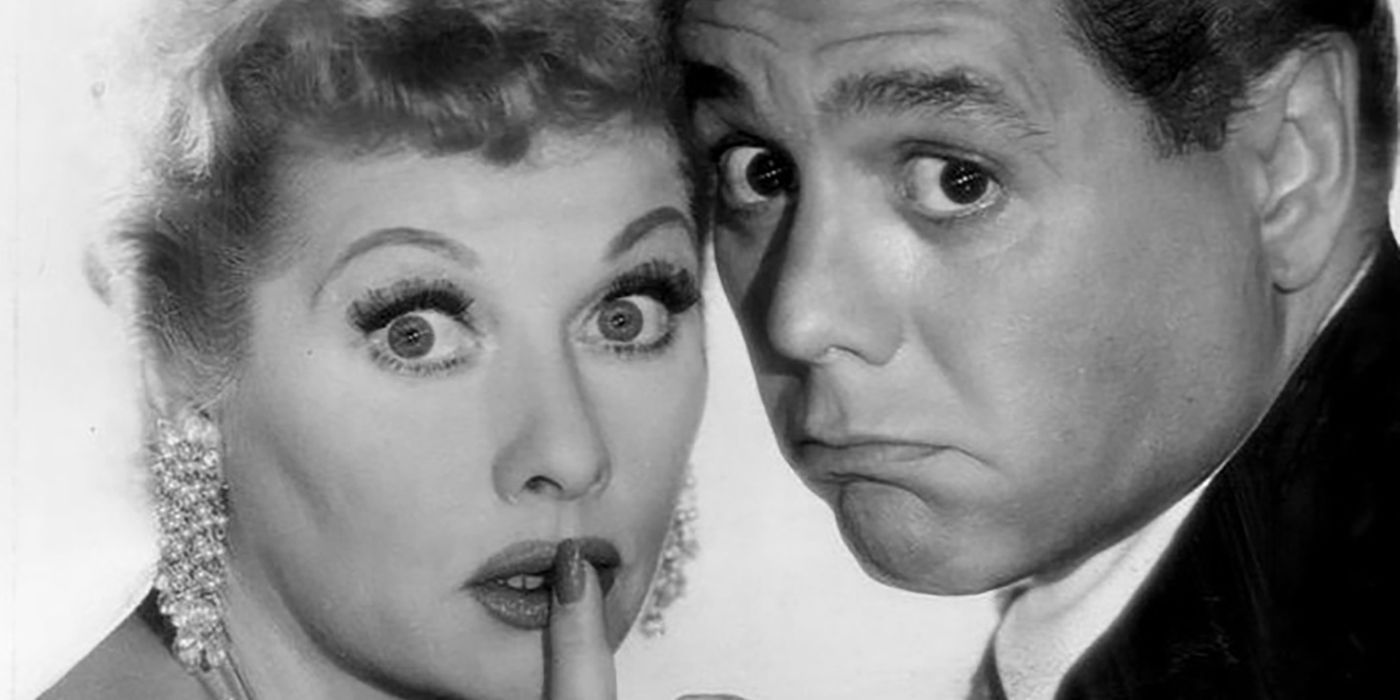
A staple of American pop culture, whose approach to comedy is still referenced and homaged to this day, I Love Lucy ran for an impressive total of six seasons, 180 half-hour episodes, from 1951 to 1957, garnering a stunning 16 million audience (about 60% of households at the time). While the show’s success and resilience are mainly attributed to the charm of Lucille Ball and Desi Arnaz, it also pushed boundaries for its era, both in themes explored and TV production.
As the first scripted TV show in the live audience format, it was a huge step forward for the sitcom, and the show’s influence on syndication and re-run format shaped how channels viewed their programs. Moreover, the show was boundary-breaking in both showing Lucille Ball’s real-life pregnancy and introducing it into the plot (to name one of a few ways the show pushed boundaries), a subject at one time considered not fit for American audiences.
Despite all its accolades and success, many may not be aware that the show’s conclusion felt abrupt for many at the time. The series never really got a proper finale to show Lucy and Rick off, giving them a deserved chance to say farewell. We will examine what went on behind the scenes and why I Love Lucy ended abruptly without a finale.
The Final Episode of I Love Lucy
The final episode of I Love Lucy was titled “The Ricardos Dedicate a Statue” and aired on May 6, 1957. The episode’s plot involved Lucy accidentally breaking a statue meant to be revealed at an upcoming ceremony and deciding to save face and take the place of the statue while donning stone makeup. The episode is considered a decent entry in the sitcom. However, it does not match the same iconic status of other stand-outs as “Job Switching”: (featuring the chocolate conveyor belt bit) or “Vitameatavegamin” which sees Lucy getting tipsy while filming a commercial for a tonic solution.
If anything, the final episode left audiences generally upset, with the abrupt end not suiting what had come before it and not giving the closure many wanted. The fact that this was the final episode was also not told to the cast, so even the cast and crew were not given the satisfaction or closure of ending on a high note. This would cause Lucille Ball to speak out on what happened, and the truth behind the reason I Love Lucy did not have a proper finale soon became a huge talking point.
Why I Love Lucy Did Not Have a Proper Finale

One of the more sensational believed reasons behind the cancelation of I Love Lucy came as part of the ‘Red Scare’ of the era, which saw a general fear of communism infiltrating and corrupting the morals of American society. One of the major controversies that befell the show was Ball’s alleged ties with the Communist Party when it was revealed in 1953 that she voluntarily met with the House Un-American Activities Committee and registered as a communist. However, Ball has stated that this was to appease her grandfather at the time and that she was not an active member of the party and this is not the reason given for the show being canceled.
Lucille Ball’s and Desi Arnaz’s relationship began to struggle in popularity, with Arnaz’s weakness for booze and other women creating a constant sense of tension between the two off-set. However, it should be noted that Lucille Ball and Desi Arnaz are still seen as a couple that were madly in love, despite the many ups and downs in their relationship. In addition, though not as big of a contributing factor, William Frawley and Vivien Vance who portrayed Fred and Ethel Mertz, were also known to dislike each other. This was minor, but it was part of the many reasons why the production began to unwind.
Still, the most obvious reason for the decline was general exhaustion that extended past the cast to the crew as well. Six seasons and trying to keep on coming up with new concepts had the entire cast and crew burnt out. Combining this with complications between the cast, the show’s end was inevitable. Lucille Ball faced a highly emotional period after the cancelation; as reported in her memoir, she spent days crying on a friend’s couch. This was also followed by a run on Broadway, which was faced with negative reviews that further challenged the ’50s icon. However, this was not the end of the I Love Lucy legacy, and she was able to provide some closure with follow-up projects.
